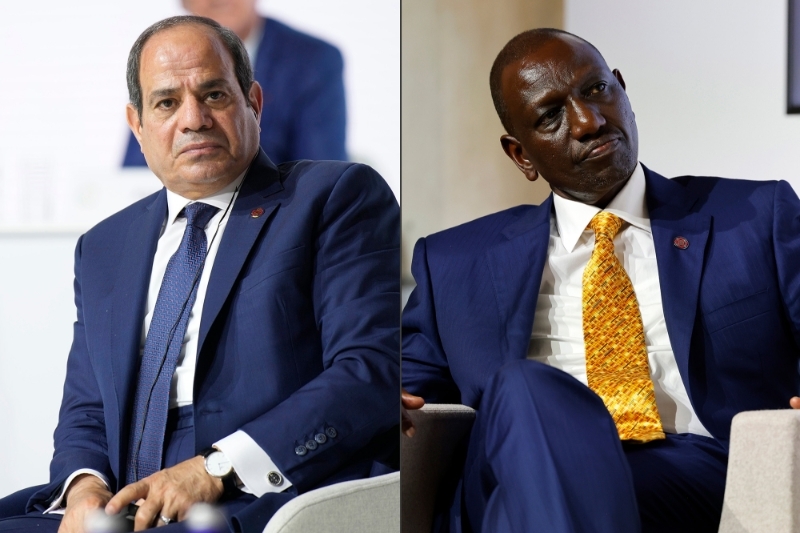While President Abdel Fattah al-Sisi is slated to travel to Nairobi for the AU mid-year summit, Egypt and Kenya are making progress on a trade treaty on tea that has been in the pipeline for months. The two countries could agree to payments in Kenyan shillings.
The Egyptian ambassador in Nairobi, Wael Attiya, and Kenyan trade secretary Moses Kuria have in recent months been quietly preparing a trade agreement for the sale of Kenyan tea to Egypt. Egyptian president Abdel Fattah al-Sisi, who is expected in Nairobi on 16 July for a mid-year African Union summit, is due to discuss the matter with his counterpart William Ruto. The two men met last month in Paris on the sidelines of French president Emmanuel Macron’s New Global Financial Pact summit.
The agreement could be signed within weeks, according to sources at State House. The two countries, which both face serious shortages of foreign currency, are considering payment in Kenyan shillings for Egypt’s future tea imports. Pakistan, the largest importer, and Egypt, the second largest, account for 55% of Kenyan tea sales abroad.
The Kenyan and Egyptian economies have both been badly affected by the war in Ukraine and are struggling to finance their imports. As a result, Egypt bought half as much tea in 2022 as it did the previous year. The Egyptian pound has lost more than 25% against the dollar since last October, exacerbating the shortage of foreign currency. This latest depreciation was in response to a demand from the International Monetary Fund (IMF), in exchange for a $3bn bailout of the Egyptian economy.
Cutting out the middlemen
Since coming to power last year, Ruto has pushed the idea that African countries should be able to trade in their national currencies, via a mechanism controlled by the Cairo-based African Export-Import Bank (Afrexim Bank).
Kenya also wants the agreement with Egypt to limit the number of intermediaries in the supply chain, and to get rid of the brokers who reduce farmers’ profits. Following talks with the Egyptian ambassador on 21 June, Kuria also announced that Kenya would soon import sugar from Egypt to alleviate the shortage facing the country.
Kuria has since Ruto’s election been one of the most active Kenyan ministers on the international stage and has made numerous trips to African nations and to the Middle East.
Sudanese conflict also on agenda
Ruto and Sisi are also expected during their meeting in Nairobi to discuss the conflict in Sudan, which since mid-April has pitted the forces of General Abdel Fattah al-Burhan against those of Mohamed Hamdan Dagalo.
In June, Ruto was appointed as the referent for Sudan of the Quad group alongside Djiboutian president Ismail Omar Guelleh, South Sudanese president Salva Kiir, and Ethiopian prime minister Abiy Ahmed Ali. The Quad, which operates under a mandate from the Intergovernmental Authority on Development (IGAD), is tasked with coordinating diplomatic responses and the many attempts to mediate in the conflict.
Sisi was due to convene this Thursday a meeting of the leaders of Sudan’s neighbours in Cairo. The AU, the United States and Saudi Arabia are also seeking to find a way to end the Sudan conflict but are struggling to speak with one voice on the subject.
Source: Africa Intelligence






